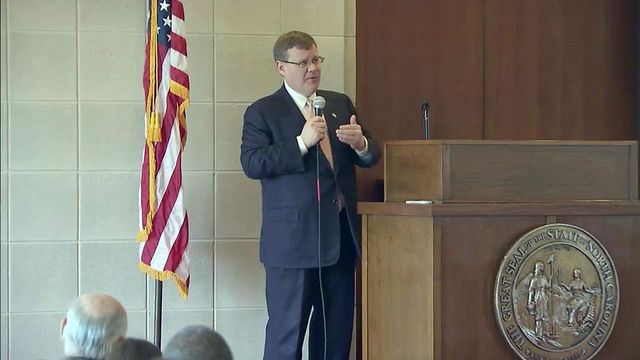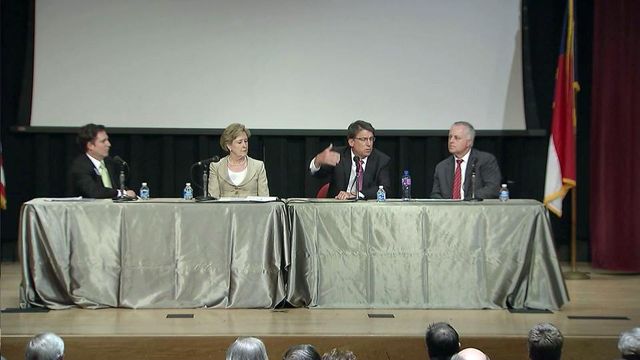Berger, Moore quizzed on privilege license, historic tax credit
Local officials from across North Carolina didn't get the support they were looking for Wednesday when legislative leaders sidestepped discussion of restoring a local business tax and shot down the idea of restoring a tax credit that was popular in both big cities and rural communities.
Posted — UpdatedThe North Carolina League of Municipalities' annual Town Day at the legislature included question-and-answer sessions with both House Speaker Tim Moore and Senate President Pro Tem Phil Berger.
The loss of both the privilege license tax and the historic preservation tax credit is a major concern for cities and towns statewide. The credit was allowed to expire in December as part of the legislature's 2013 overhaul of the state tax code, while privilege licenses will end in July under tweaks to the overhaul that lawmakers passed last year.
Privilege licenses are taxes municipalities charge to businesses that set up shop within their boundaries. Although Gov. Pat McCrory and lawmakers promised last summer to devise a mechanism that would help cities and towns replace the lost revenue, Moore, R-Cleveland, said Wednesday that nothing was pending in the General Assembly.
"I don't know the direction we're going," he said. "I do think that folks are taking a second look at trying to come back and do something different."
Likewise, he said, no decisions have been made in the House regarding a Senate proposal to change how sales taxes are allocated, shifting more money to rural areas.
In a separate session with League of Municipalities members, McCrory criticized the sales tax proposal, calling it divisive. He also said he and budget director Lee Roberts are working on proposals to replace the lost privilege license revenue.
Meanwhile, Berger, R-Rockingham, said he doesn't favor extending the historic preservation tax credit. The McCrory administration has been lobbying hard to reinstate it, saying it would boost inner cities and small towns alike by helping redevelop abandoned factories and warehouses.
"There are a number of us who have some concerns about using the tax code to incent behavior," Berger said.
The Senate hopes to find money in the 2015-16 budget to create a grant program for such redevelopment projects, similar to the grant program that has replaced the state's former tax credit for film and television productions, he said.
McCrory said North Carolina's unique needs, such as defunct textile mills and furniture plants, require the state to maintain some tax credits. He said breaks for airlines, NASCAR teams and researchers are still in the tax code, and the historic preservation credit should be revived.
"We get a net return on that investment," he said of redeveloping dilapidated buildings, which often are in downtown areas.
Related Topics
• Credits
Copyright 2024 by Capitol Broadcasting Company. All rights reserved. This material may not be published, broadcast, rewritten or redistributed.






